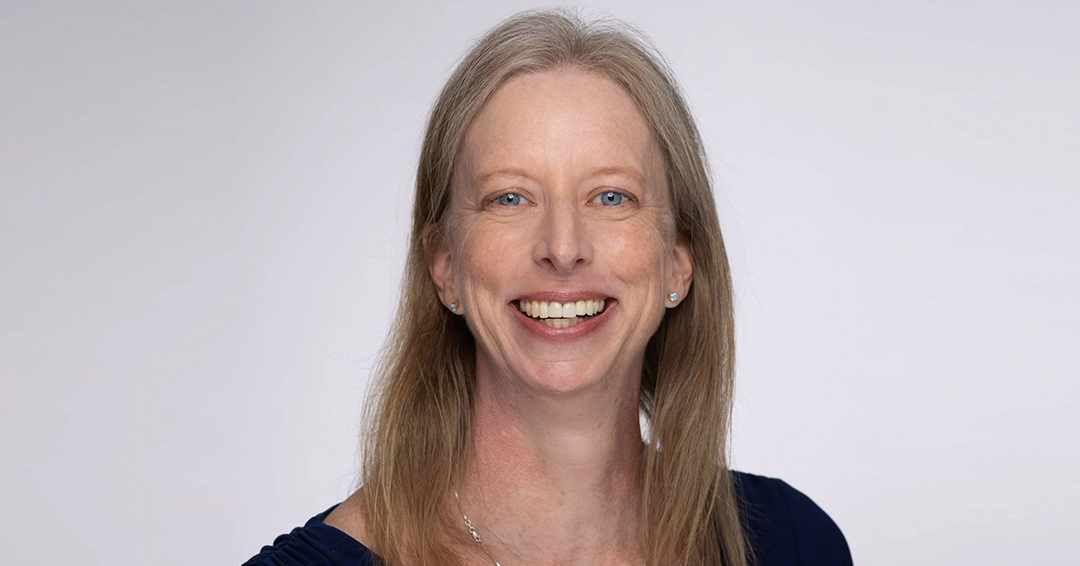
In the wake of the Paris Games, the Olympic swimmer turned McGill rheumatologist reflects on her days as an elite athlete and its impact on her career choice
At the Barcelona Olympics in 1992, the year of the basketball Dream Team, with Nelson Mandela in the stands, 18-year-old Canadian Elizabeth Hazel clocked a time of 2:17.70 in the women’s 200-metre backstroke event, finishing 25th overall among 43 competitors.
Prior to the Olympics competition, she had made her international debut at the 1991 Pan American Games in Havana, winning a bronze medal in the women’s 200-metre butterfly.
Today, as Associate Professor of Medicine in the Division of Rheumatology and in the wake of the Paris Olympics in which Summer McIntosh collected four medals (three gold and a silver), Elizabeth Hazel, MDCM, reflects on her own Olympic experience.
“I remember the opening ceremonies. We, the Canadian Team, were in a tunnel leading to the stadium. I recall that feeling of electricity and joy and anticipation, and we could see the Dream Team from where we were,” says British-born Dr. Hazel, who is a rheumatologist at the Montreal General Hospital and division director for rheumatology at the McGill University Health Centre. “The time was really quite incredible. The city treated us like royalty, which for a 18-year-old amateur athlete was great.”
Dr. Hazel notes such conveniences as vending machines dispensing free drinks and ice cream, free public transit and complimentary admission to the city’s museums.
“I recall being surrounded by athletes at the peak of their athletic health and existence. Such a unique experience.”
Competitive swimming is a close-knit community where athletes and their families often cross paths. “I swam with Jill McIntosh, Summer’s mom, at the University of Florida. So, I’ve been following Summer from when she was 12 years old just because I knew that she was Jill’s daughter. I am so impressed with her at just 17 years old,” Dr. Hazel said. “I think things can only get more impressive for her. Seventeen is definitely not the peak of a swimmer’s career.”
Dr. Hazel attributes some of her academic success to the habits she acquired from competitive swimming. “The life of a swimmer is wake up at 5:00 in the morning, swim for two hours, go to school, swim for another two hours, do weights, do your homework, go to bed. I started swimming when I was six or seven. And I did that all the way through my undergrad. So I think that sets you up for success in life.”
Another contributing factor to her success, says Dr. Hazel, was her mother’s example. “My mom was a teacher, so I always liked and appreciated how important teachers were in my life. I think a lot of people will tell you the most influential people in your life are teachers and coaches. And if you see the value in those relationships, then you want to be like that person.”
Inevitably, teaching would become Dr. Hazel’s primary interest and forte. As a clinical teacher, Prof. Hazel supervises students and residents of all levels in outpatient clinics and residents in a multi-site rheumatology consult service. She was named to McGill’s Faculty Honour List in 2022, and was recognized with a McGill Faculty Award for Teaching Innovation. She received a Clinical Innovation Award in Internal Medicine in 2018.
Having completed a fellowship in pediatric rheumatology, her sub-specialty is juvenile arthritis. “I take over the care of young adults at the most important time in their lives where they’re starting to know who they are and what they want to be as an adult. And, I just have so much fun caring for these young adults, who are such heroes in dealing with all of the issues of adolescence, and at the same time also have a chronic illness to cope with. I have the opportunity to help shepherd them through those tough times.”
In March 2023, Dr. Hazel was appointed Assistant Dean, Competency‐Based Medical Education Postgraduate Medical Education, at McGill University’s Faculty of Medicine and Health Sciences. Dr. Hazel oversees both programs within the College of Family Physicians of Canada and Royal College of Physicians and Surgeons of Canada frameworks.
“The teaching profile comes in there as well. I started out pretty early on in my in my medical career being program director for rheumatology and I really enjoyed that mentorship kind of role. I made improvements in the assessment methodology that had been there previously. So, when the opportunity came to fulfill that role at McGill, it made a lot of sense and I like to think I’m a good fit in that position,” Dr. Hazel said.
“I have a great group of rheumatologists that I work with who each have their own specialty interests. So, we’re able to provide really top-notch care to people with different forms of rheumatic disease. We also are really lucky to have administrative support that I think is second to none.”
A dream team, no less.
